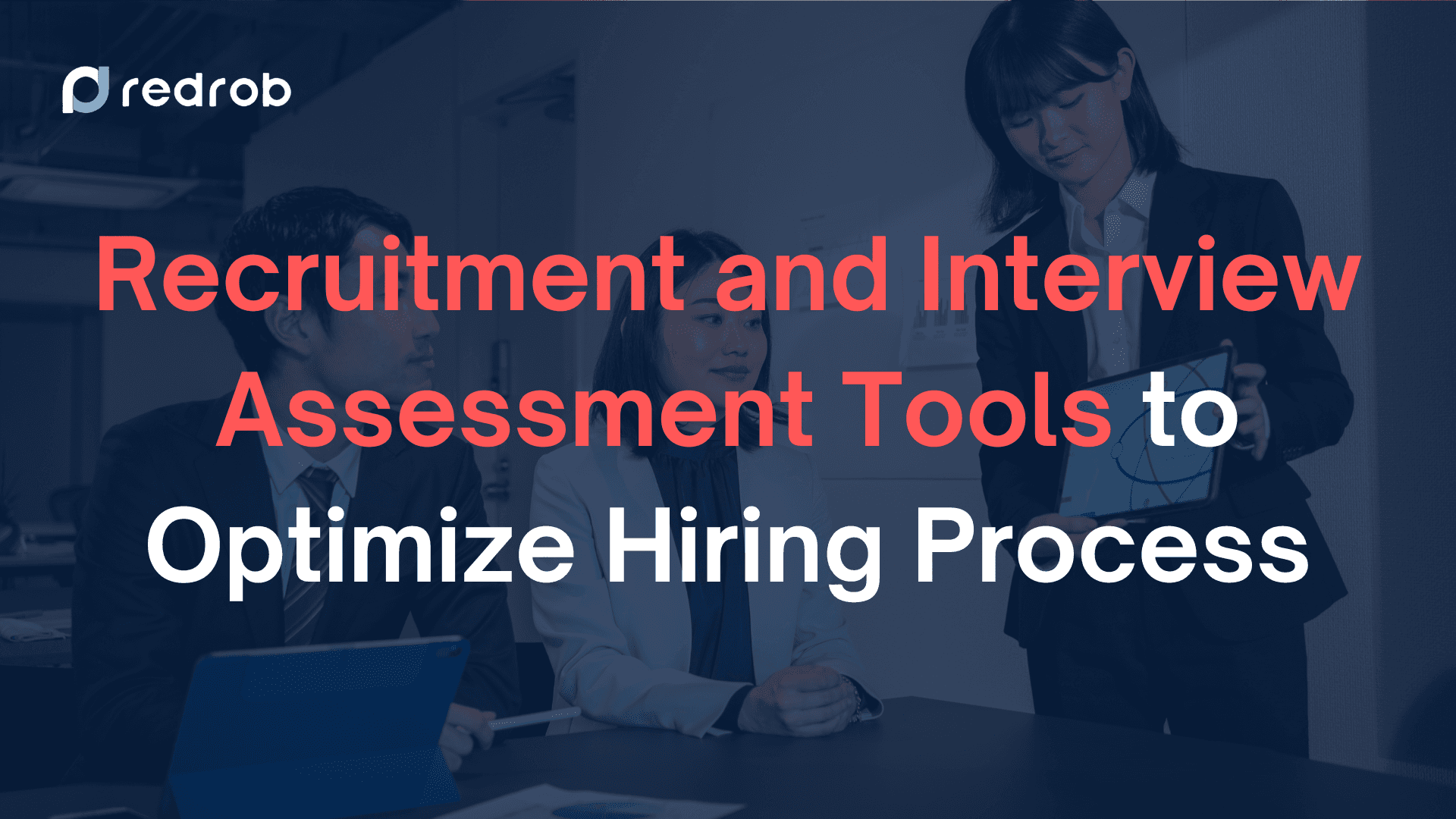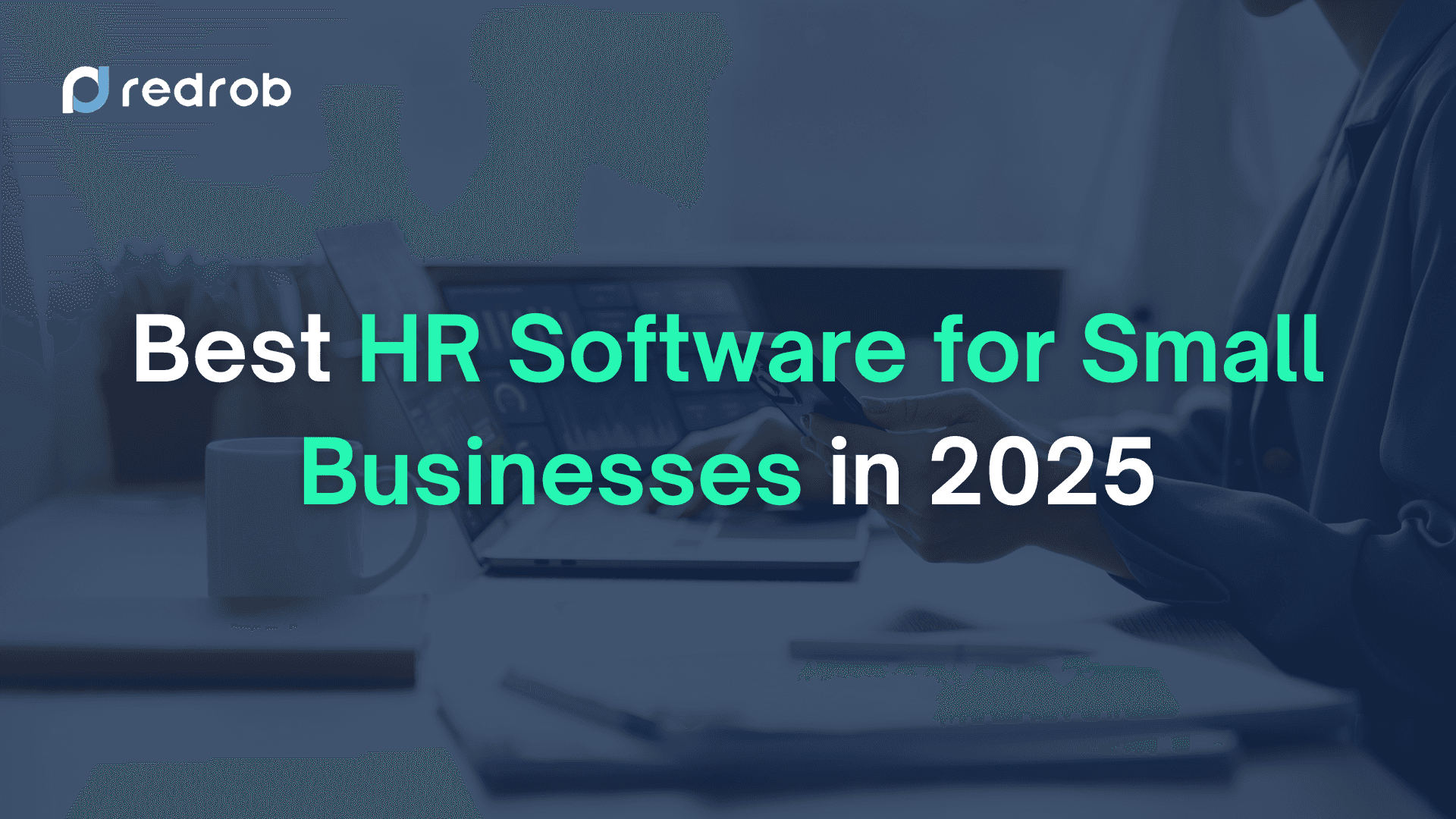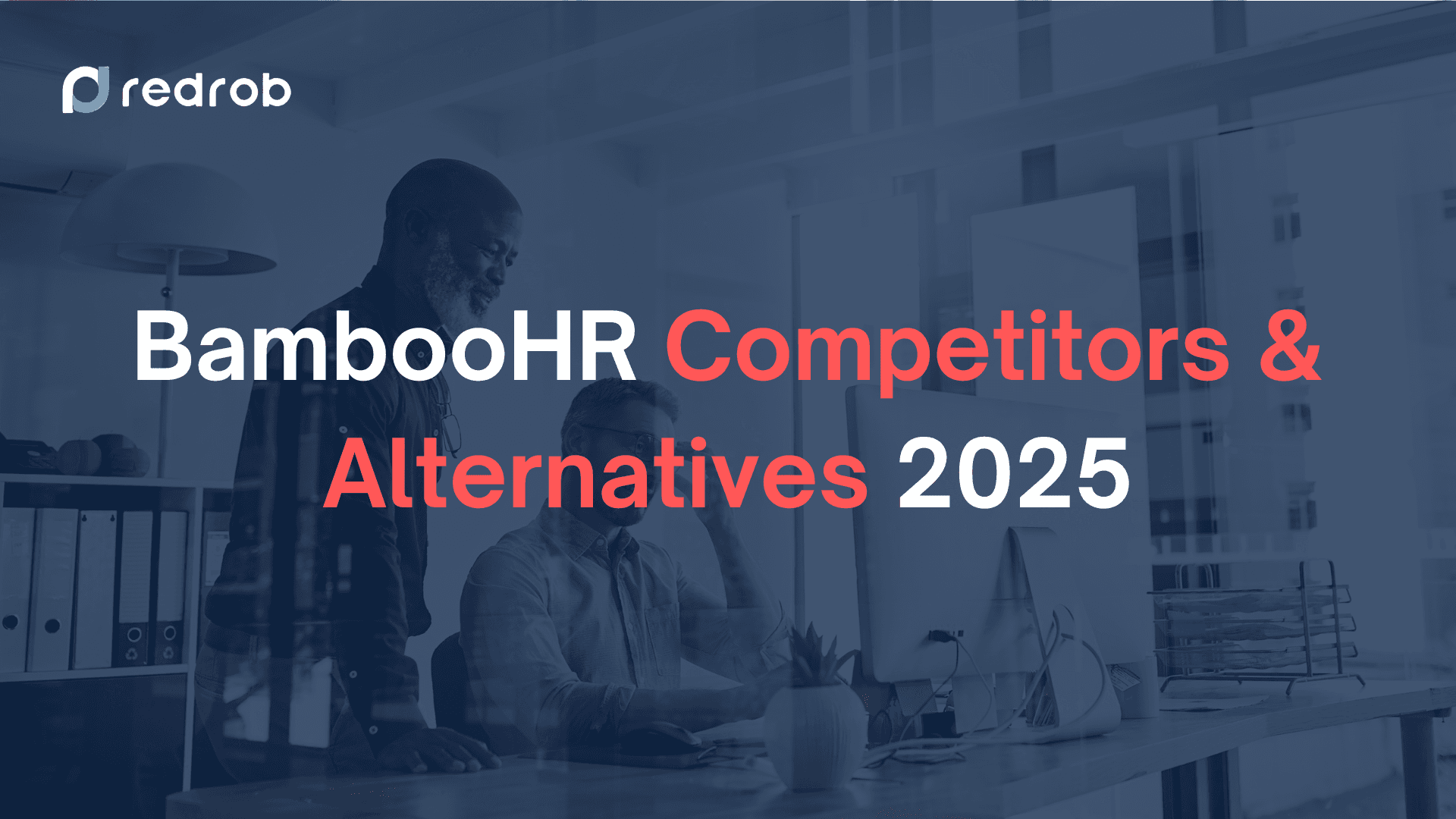Recruitment
15 mins read
•
Nov 19, 2024

Soumyata Singh
Recruiting the right talent has never been more important—or challenging. Today’s hiring process is fast-paced and complex, making it essential to have reliable recruitment and interview assessment tools. These tools are key in identifying top candidates, helping you save time while ensuring the best fit. With the best test tools for assessing the interviewing process, you can streamline your hiring by effectively assessing skills, experience, and cultural fit.
Using the right assessment tools can mean the difference between a long, tedious hiring cycle and a well-oiled, efficient process. Imagine evaluating each candidate’s strengths through real data, not just gut feelings. By bringing structure and precision into hiring, you’ll make quicker, more confident decisions. Whether you’re handling a high volume of applications or seeking niche skills, optimized tools simplify it all.
In this blog, we’ll explore some popular tools and strategies to help you hire better.
Types of Recruitment and Interview Assessment Tools
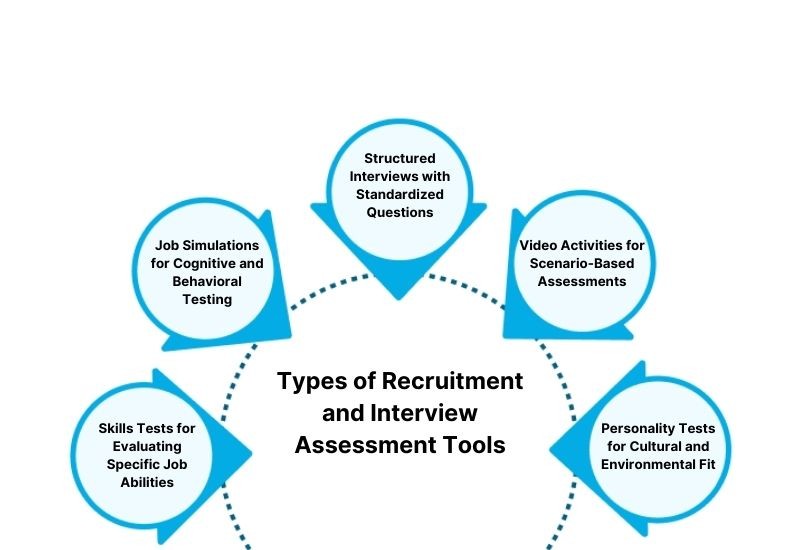
Finding the right candidate goes beyond a good resume and interview. It’s about ensuring candidates have the skills, personality, and fit to excel in your company. Various test tools for assessing the interviewing process allow you to evaluate all aspects of a candidate efficiently and consistently. Here are some of the most important types of tools you can use to get a complete picture of each applicant.
1. Skills Tests for Evaluating Specific Job Abilities
Skills tests are essential for confirming that candidates have the required expertise. These tests let you quickly assess applicants' knowledge in specific areas, from technical skills to communication abilities. Whether it’s software proficiency, language fluency, or data analysis skills, these tests ensure you’re only moving forward with the most capable candidates. By incorporating skills tests early on, you can save time and focus on top candidates.
2. Job Simulations for Cognitive and Behavioral Testing
Job simulations bring the role to life. These simulations test how candidates perform tasks they’d face in the position, allowing you to assess cognitive abilities, problem-solving, and behavioural tendencies. They offer a realistic glimpse into a candidate’s potential performance, helping you evaluate their work style and response to challenges. Through job simulations, you can identify those who adapt well to real-world situations.
3. Structured Interviews with Standardized Questions
Structured interviews are invaluable for creating consistency across candidate evaluations. Using standardised questions, you can objectively compare applicants based on predetermined criteria. Structured interviews also help reduce bias by ensuring each candidate is asked the same questions. They are a crucial part of test tools for assessing the interviewing process, ensuring fair, data-driven evaluations and boosting hiring efficiency.
4. Video Activities for Scenario-Based Assessments
Video activities let you assess candidates’ responses to scenarios that mirror job demands. These activities offer flexibility and convenience, allowing candidates to respond asynchronously or live. Scenario-based video assessments provide insights into communication skills, problem-solving, and situational judgment. With various video activities available, you can tailor assessments to specific roles and gather a richer understanding of each candidate.
5. Personality Tests for Cultural and Environmental Fit
Hiring isn’t only about skills; it’s also about fit. Personality tests assess candidates’ values, motivations, and interpersonal traits, ensuring they align with your company culture. These tests show how well an applicant might thrive in your environment. By evaluating personality traits early in the process, you can focus on candidates who are likely to stay and grow within your organisation.
Next, look into the top recruitment and interview tools that bring these assessments to life and support an optimised hiring process.
Best Recruitment Assessment Tools
For Images, add screenshots of each tool
The recruitment process is more efficient when you use reliable tools to assess candidates. With the right test tools for assessing the interviewing process, you can gain insights into candidates’ skills, personalities, and cultural fit. Here are some of the best tools to streamline and improve your recruitment process.
1. Redrob
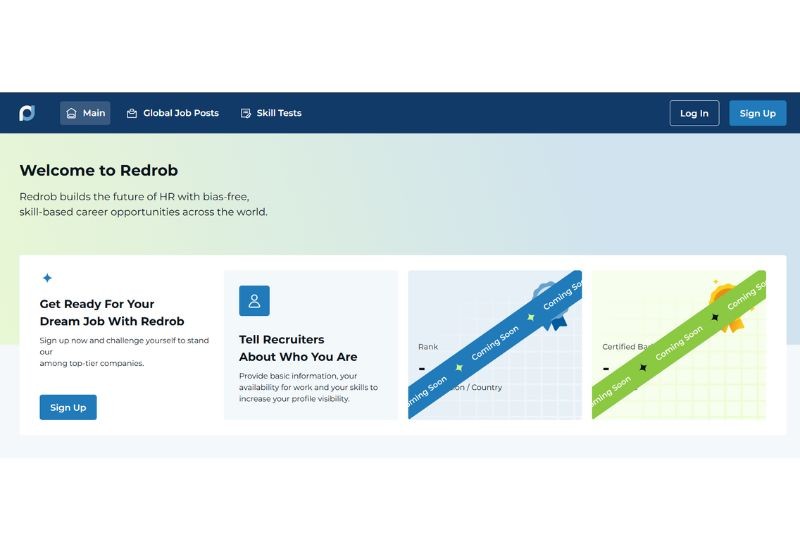
Redrob offers a complete suite of tools for recruitment, from pre-employment assessments to skills testing. This tool is designed to help companies identify talent quickly by focusing on core skills and role-specific abilities. With an intuitive interface, Redrob enables you to create custom tests for any position and set scoring criteria to filter top candidates effortlessly.
Key Features:
Customisable assessments for diverse roles
Pre-employment skills and aptitude tests
Detailed scoring to help filter out unqualified candidates
Best For Small to mid-sized businesses looking for a straightforward tool to assess job-specific skills.

2. VidCruiter
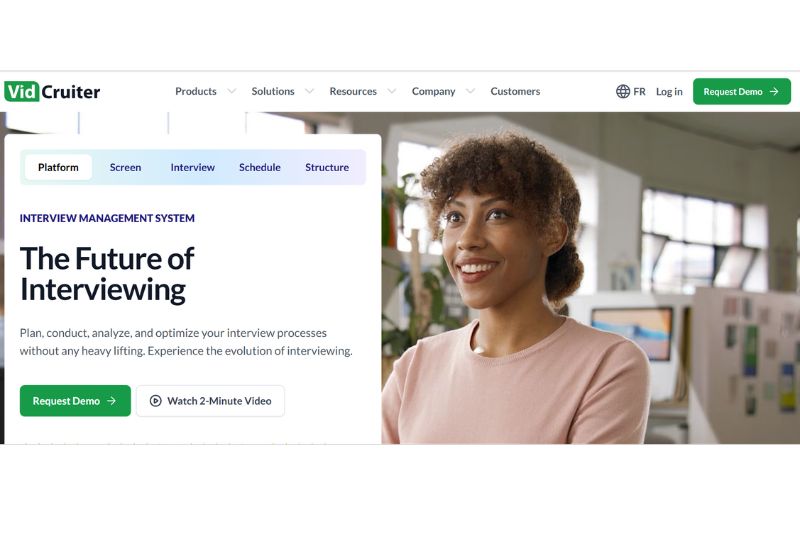
VidCruiter is a popular tool known for its video interviewing and custom assessment options. The platform allows you to conduct live or pre-recorded video interviews, giving candidates flexibility and employers time-saving options. VidCruiter’s interface is also designed to create assessments tailored to the role, which provides greater insight into a candidate's abilities before they reach the interview stage.
Key Features:
Video interviewing options, live and pre-recorded
Customizable assessment templates for specific job roles
Applicant tracking to keep the hiring process organized
Best For Companies needing a comprehensive video interviewing solution with flexible assessment options.
3. iMocha
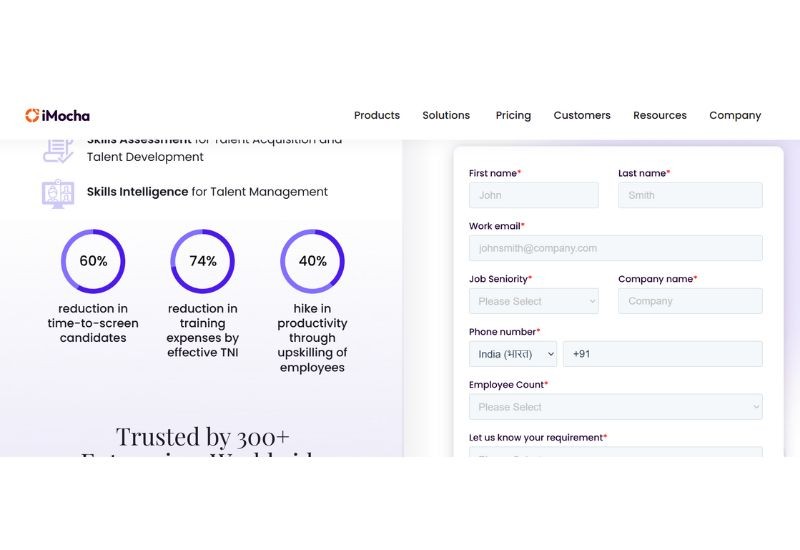
iMocha is a robust assessment suite that covers a wide range of job roles and industries. It includes intelligent analysis tools to evaluate technical and cognitive skills, helping you make data-driven hiring decisions. iMocha’s AI-powered insights aid in identifying the best fit quickly by analyzing test results.
Key Features:
AI-driven assessments covering technical and cognitive skills
Intelligent interview analysis for deeper candidate insights
Real-time reporting to monitor applicant performance
Best For Organizations looking for a data-rich tool to assess candidates across technical and cognitive skills.
4. Toggl Hire
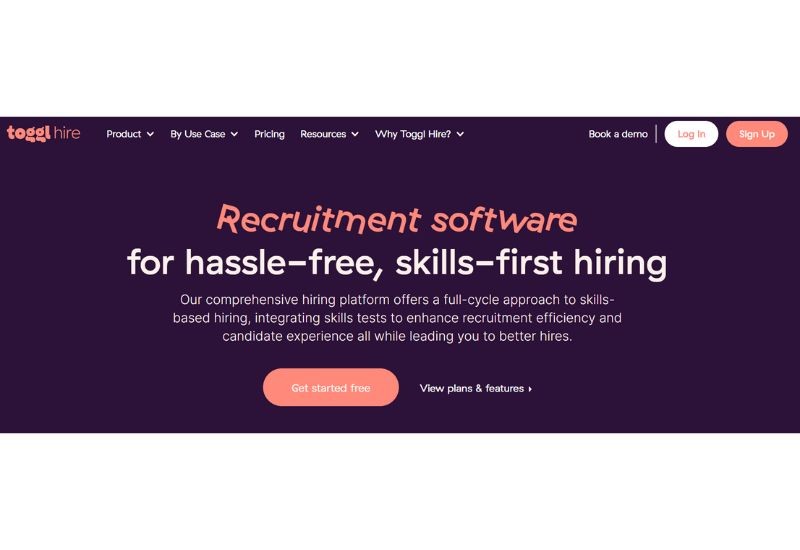
Toggl Hire simplifies candidate screening by automating background checks and providing easy-to-use skills tests. This platform helps streamline the hiring process for roles that require a straightforward skills assessment, allowing you to quickly eliminate candidates who lack core competencies. Toggl Hire’s interface makes it easy for recruiters to manage applicants at every step.
Key Features:
Automated background checks and basic skills tests
Quick elimination of candidates not meeting minimum requirements
User-friendly dashboard to track applicants through each stage
Best For Fast-paced hiring for roles with essential but straightforward skills requirements.
5. Assess First
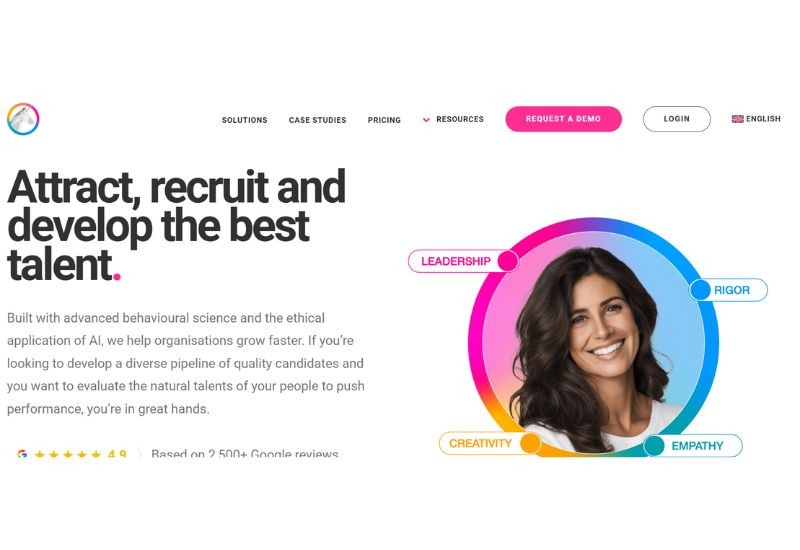
Assess First is ideal for tech screening and personalized candidate assessments, focusing on skills, personality, and cognitive abilities. It enables recruiters to create assessments that match the technical and cultural needs of their organization. With Assess First, you can evaluate candidates for their potential to succeed and grow within the company.
Key Features:
Specialized assessments for technical roles
Focus on cognitive abilities and personality fit
Customizable templates to match job-specific requirements
Best For: Tech companies and roles needing skills and personality alignment.
6. HireVue
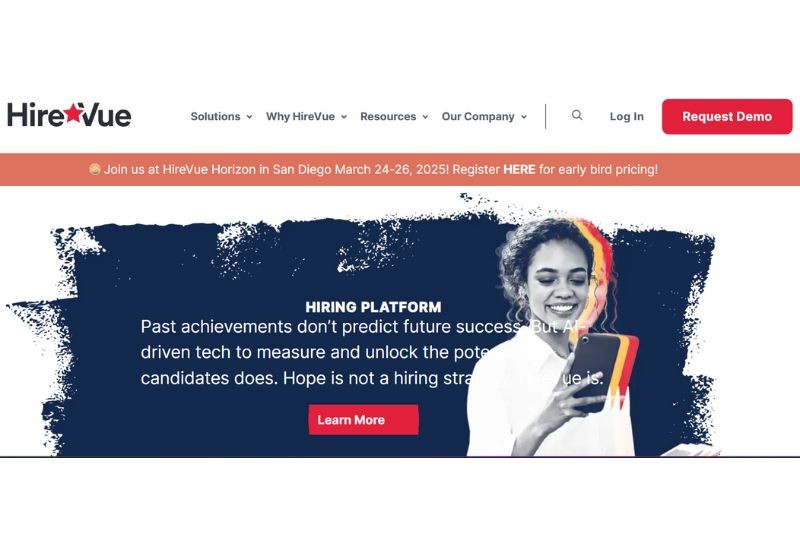
HireVue combines video assessments with AI analysis to provide in-depth candidate insights. Its video platform allows applicants to record responses, enabling recruiters to assess soft skills, body language, and communication style. The AI component of HireVue further enhances the selection process by analyzing responses for consistency and engagement, helping you find the best fit quickly.
Key Features:
Video interviewing with detailed analysis of responses
AI-enhanced assessment for consistency and engagement
Compatible with ATS platforms to track and manage candidates
Best For: Large organizations that need a scalable video interview solution with advanced analytics.
Moving ahead, let’s explore tools specifically tailored for assessing interview performance to refine your overall hiring strategy.
Best Interview Assessment Tools
Using effective test tools for assessing the interviewing process helps identify candidates who fit both the role and your company culture. The right interview assessment tools bring structure and insights, enhancing your decision-making. Here’s a look at some top tools that can streamline interview assessments.
1. Redrob

Redrob is a versatile platform that combines automated interviews with custom question options. It helps standardize interviews, ensuring each candidate is evaluated on consistent criteria. The platform allows you to set automated grading and scoring criteria, making the hiring process smoother and quicker. You can get a FREE trial to see how the solutions help your hiring process.
Key Features:
Customizable interview questions for various roles
Automated grading for faster assessments
Real-time reporting and data tracking
Best For Businesses seeking an efficient way to automate and standardize interview assessments.
2. NinjaInterview
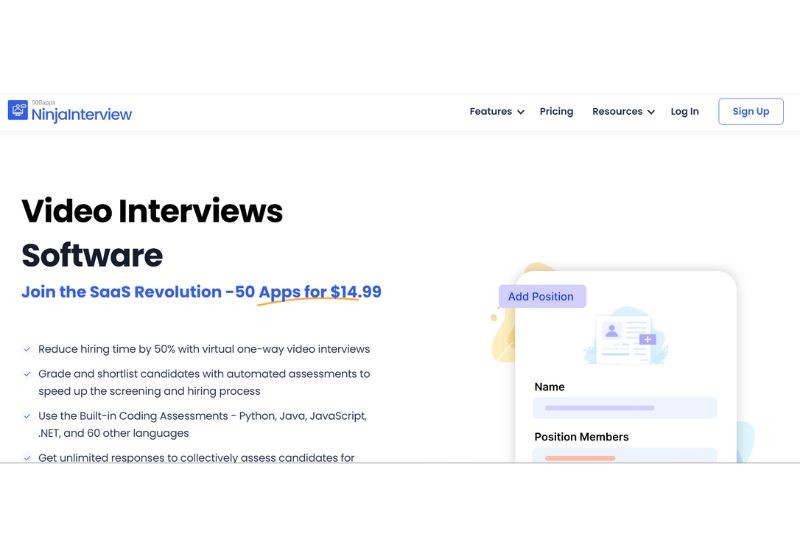
NinjaInterview stands out with its asynchronous interview features, allowing candidates to record responses conveniently. This flexibility is valuable for hiring managers and candidates alike, making it easier to accommodate busy schedules. Automated grading also saves time, providing a clear, unbiased picture of each applicant’s responses.
Key Features:
Asynchronous interviews for flexibility
Automated grading for fast, consistent results
User-friendly platform for both candidates and recruiters
Best For Companies that need flexible, on-demand interviews without compromising consistency and quality.
3. Spark Hire
Spark Hire is a leading tool for video response interviews that works across devices. The platform supports both live and pre-recorded interviews, giving you a comprehensive view of each candidate. Spark Hire’s intuitive dashboard allows you to review and share interview recordings, making collaborative hiring easier and faster.
Key Features:
Video response interviews accessible across multiple devices
Option for live or recorded interviews
Centralized dashboard for easy review and sharing
Best For: Organizations that prioritize video-based interviews and collaborative review processes.
4. InterviewStream
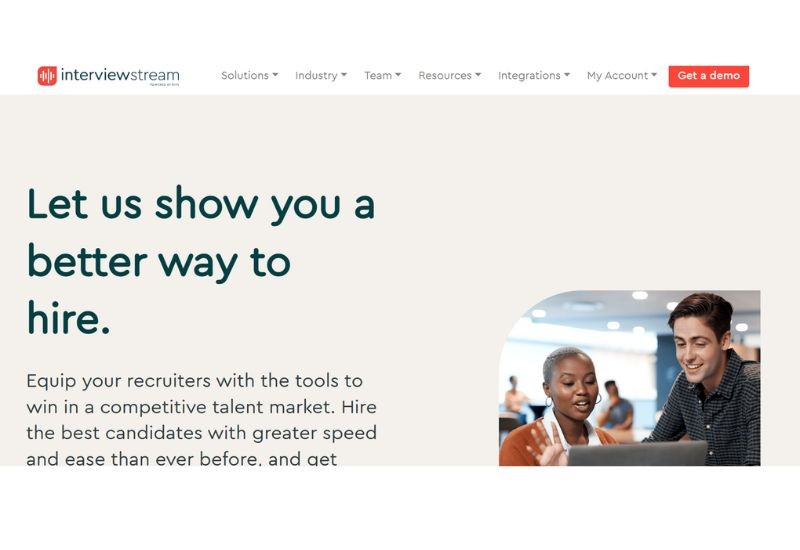
InterviewStream offers customizable interview formats with seamless scheduling options. It provides the ability to set specific questions for each role, helping to standardize the evaluation process. InterviewStream’s scheduling feature syncs with most calendars, simplifying coordination and enhancing the candidate experience.
Key Features:
Customizable interviews tailored to each job role
Seamless scheduling with calendar sync
Flexible platform suitable for high-volume hiring
Best For Companies that need customizable interview formats and streamlined scheduling.
5. VidCruiter
VidCruiter helps streamline interview stages with preset questions and automated assessments. This tool allows you to set standardized questions across multiple interview rounds, reducing time spent on repetitive tasks. With VidCruiter, you can quickly screen candidates for qualifications and suitability, creating a more efficient process.
Key Features:
Preset questions for consistency in assessments
Multiple hiring stages streamlined within one platform
Automated assessments to save time and improve objectivity
Best For Employers managing complex hiring processes with multiple interview stages.
6. myInterview
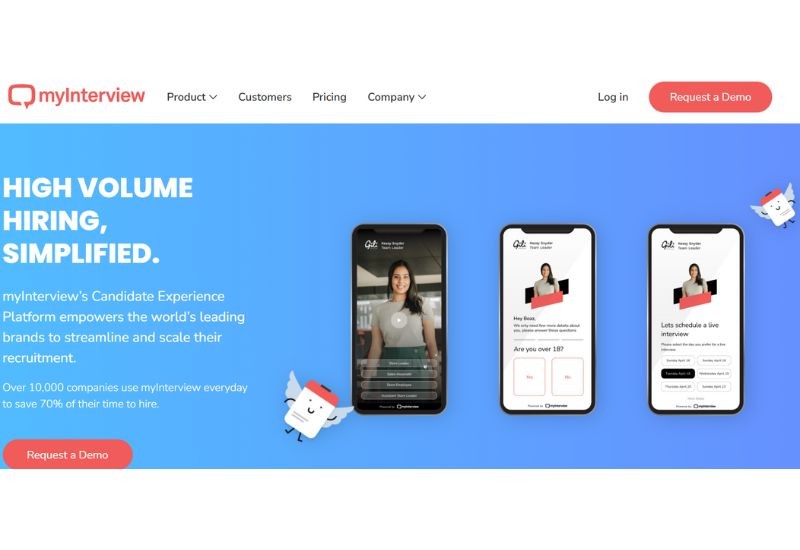
myInterview uses a Kanban board approach, enabling recruiters to track applicant status visually. It’s particularly helpful for tracking each candidate’s progress, making it easy to see where each applicant stands. myInterview also supports video responses, which gives you insight into communication skills and professionalism.
Key Features:
Kanban board to visually track candidate progress
Video response options for better applicant insights
Easy integration with most ATS platforms
Best For Teams looking for a clear, visual overview of the interview process and applicant progress.
Let’s examine the benefits of using these tools to optimize your hiring process.
Benefits of Using Recruitment and Interview Assessment Tools
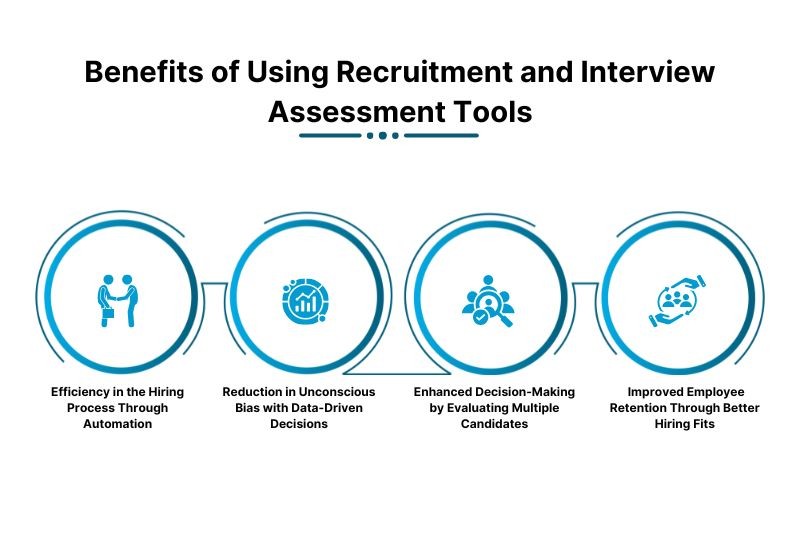
Having efficient test tools for assessing the interviewing process can make a significant difference. These tools bring valuable advantages, from speeding up candidate evaluations to reducing hiring bias. Let’s see how they can improve your hiring process and help secure the best talent.
1. Efficiency in the Hiring Process Through Automation
Automating parts of your hiring process saves time and reduces manual tasks. You can automate initial screenings, skills assessments, and scheduling with recruitment and interview tools. Automation ensures that only qualified candidates progress, freeing up valuable time for recruiters and reducing the risk of overlooking top talent. A recent survey shows that 67% of recruiters believe automation has improved hiring speed. By automating repetitive tasks, you can focus on strategic decisions that impact your hiring success.
2. Reduction in Unconscious Bias with Data-Driven Decisions
Bias in hiring can lead to poor hiring decisions and reduced diversity. Assessment tools bring a standardized, data-driven approach to evaluating candidates, minimising the impact of personal bias. By using test tools for assessing the interviewing process, recruiters make more objective decisions based on clear metrics. Automated grading, standardized questions, and AI-driven assessments further ensure fairness, helping you create an inclusive hiring environment.
3. Enhanced Decision-Making by Evaluating Multiple Candidates
These tools allow you to assess several candidates more effectively, providing valuable data for comparisons. You can evaluate all applicants' skills, experience, and cultural fit, leading to better-informed hiring choices. With features like video responses and real-time analytics, interview assessment tools help you track performance at a glance. Comparing data points across candidates makes it easier to identify the best fit for each role.
4. Improved Employee Retention Through Better Hiring Fits
Hiring the right person improves retention rates. By using interview assessment tools, you can gauge not just skills but also cultural alignment, which is key to long-term satisfaction. These tools help identify candidates who match your company’s values and work environment. Studies show that organizations prioritising hiring for cultural fit see a 30% improvement in employee retention. With test tools for assessing the interviewing process, you’ll likely hire candidates who stay and thrive in your company.

As we move forward, the next section is about how to effectively use these tools and maximise their features in your hiring process.
How to Use Assessment Tools Effectively?
Maximising the potential of test tools for assessing the interviewing process requires understanding their key features. Effective use can simplify hiring, enhance candidate experience, and help you make confident hiring decisions. Here’s how to get the most from these tools.
1. Integration with ATS for Tracking and Future Candidate Management
Integrating assessment tools with an Applicant Tracking System (ATS) enables better candidate tracking and management. You gain a complete view of each candidate’s journey by syncing assessment data with your ATS. This also helps streamline future hiring by keeping detailed records, allowing you to revisit strong candidates who may fit future roles. ATS integration saves time by consolidating data, simplifying comparisons and enhancing organization.
2. Utilize Asynchronous Interviews for Scheduling Convenience
Asynchronous interviews allow candidates to respond to questions at their convenience, making scheduling easier for both parties. With this feature, candidates can record responses when they’re ready, reducing scheduling conflicts and increasing participation. Recruiters can review responses anytime, especially when interviewing multiple candidates. Asynchronous interviews offer a flexible way to maintain consistency while saving valuable time.
3. Use AI for Bias-Free and Standardized Scoring
AI-driven scoring can help remove bias and standardize candidate evaluations. By setting clear assessment criteria, AI tools can grade candidates based on skills and performance without subjective influence. Many assessment platforms now include AI-powered scoring, ensuring that each candidate is evaluated fairly and consistently. This data-driven approach not only promotes objectivity but also enhances diversity by removing unconscious bias.
4. Automate Aspects to Save Time and Increase Productivity
Automating certain assessment tasks can free up your time for more strategic activities. Automation can include grading tests, analyzing skills, and even ranking candidates based on their performance. For example, platforms like HireVue offer automatic scoring and analysis, providing you with insights quickly and accurately. Automation increases productivity and allows you to focus on top candidates more effectively, shortening your hiring timeline.
By applying these methods, you’ll make the most of these tools, optimizing both efficiency and hiring outcomes. Next, look at some challenges and practical solutions for using assessment tools effectively.
Challenges and Solutions in Using Assessment Tools

While test tools for assessing the interviewing process offer many benefits, they also come with challenges. From candidate fatigue to privacy concerns, you must be aware of these issues and take proactive steps to overcome them. Let’s address the key challenges you may encounter and how to resolve them effectively.
Handling Interview Fatigue and Identity Verification
Interview fatigue is a real concern for both candidates and interviewers. Long, repetitive interviews can lead to disengagement and poor performance. To minimize fatigue, consider shortening assessments or breaking them into smaller, more focused tasks. Additionally, identity verification is crucial to ensure candidates are who they say they are. Many assessment tools offer integrated identity verification features, such as facial recognition or document scanning, to safeguard against fraud.
Ensuring Privacy and Competitive Data Security
Data security is vital when using assessment tools. Candidates share personal information and performance data, which must be protected. It’s essential to use platforms that comply with privacy regulations like GDPR and CCPA. Choose tools that offer encrypted data storage and secure sharing practices. Ensure that your organization follows best practices for data security, from password protection to limiting access to sensitive information.
Facilitating Realistic Candidate Evaluation Remotely
Assessing candidates remotely can present challenges in evaluating real-world skills and behaviours. For example, gauging body language, teamwork, or other soft skills during virtual assessments is harder. Use tools that offer job simulations, video responses, or scenario-based assessments to address this. These features mimic real-life work situations and help you evaluate how candidates would perform in actual roles. Additionally, providing clear instructions and guidelines for candidates ensures that the evaluation process is fair and realistic.
Addressing these challenges will help you get the most from assessment tools, ensuring a smoother and more effective hiring process. With these solutions in place, you're better equipped to make informed decisions and improve your hiring strategy.
Conclusion
Recruitment and interview assessment tools are essential for streamlining the hiring process. They help you identify the best candidates quickly and efficiently. You gain insights that drive better decisions by using the best test tools for assessing the interviewing process. These tools save time, reduce bias, and improve overall hiring outcomes.
To truly optimize your recruitment, adopt tools that match your company’s needs. Tailored solutions ensure you focus on the right skills, behaviours, and cultural fit for each role. Personalized tools can significantly improve your hiring process and help you find the best candidates faster.
If you're looking for a comprehensive, easy-to-use tool, consider Redrob's services. Redrob offers powerful features to make your hiring process smoother, 92% faster, and more effective. Get started with Redrob today and take your recruitment to the next level. You can save up to 88% on hiring costs and onboard the best talents.
Start optimising your hiring process now with Redrob—book a demo today!
